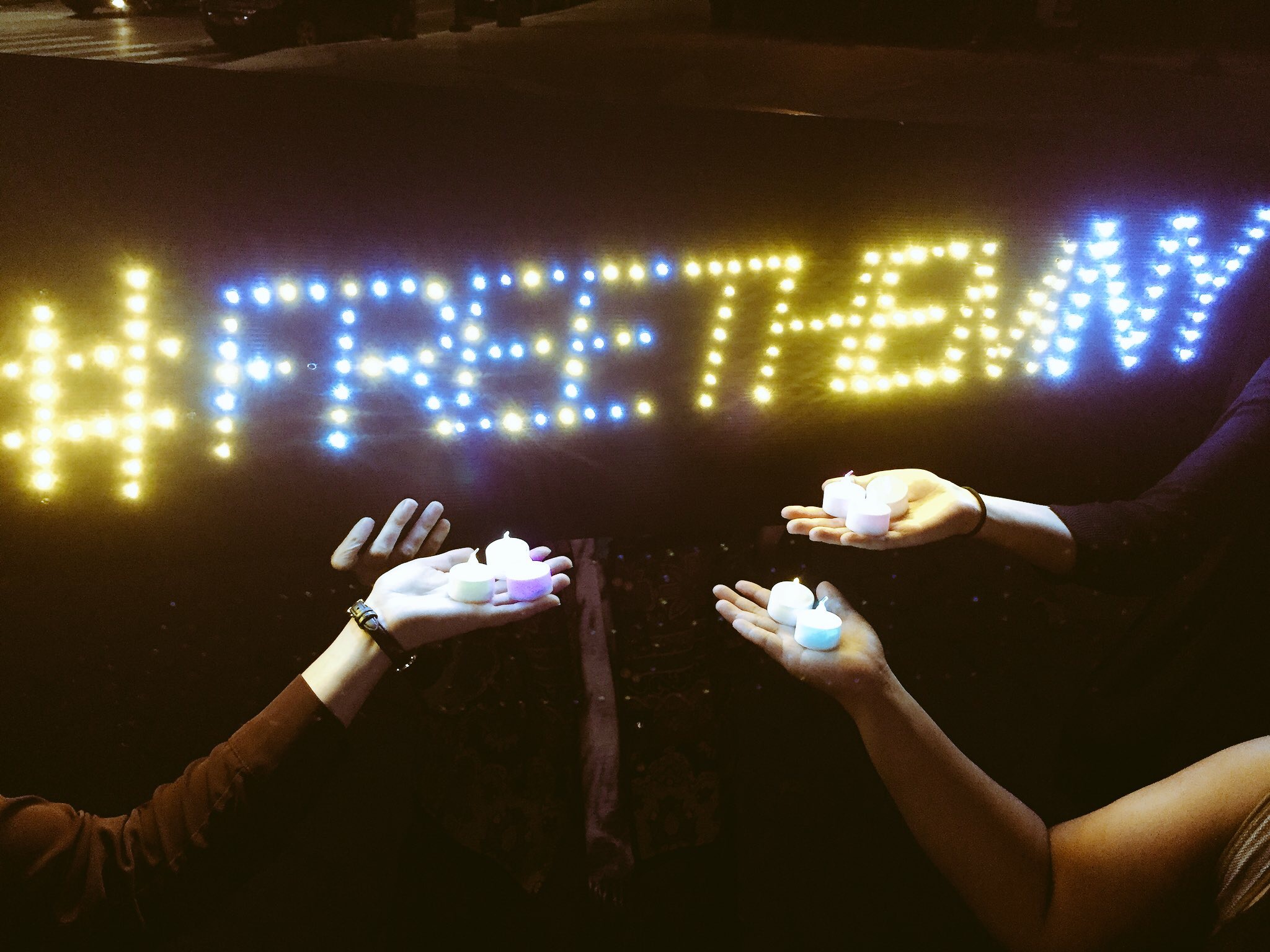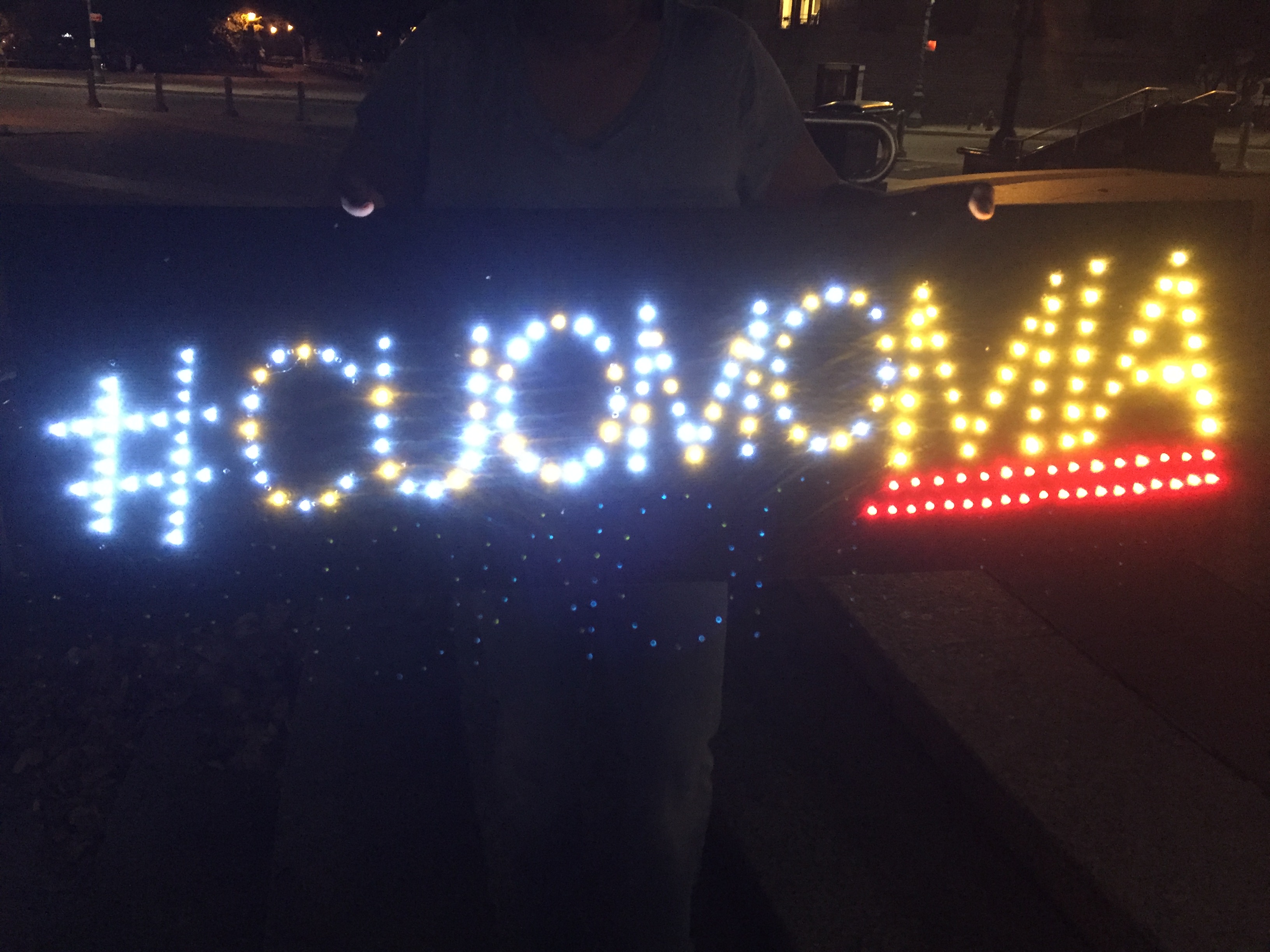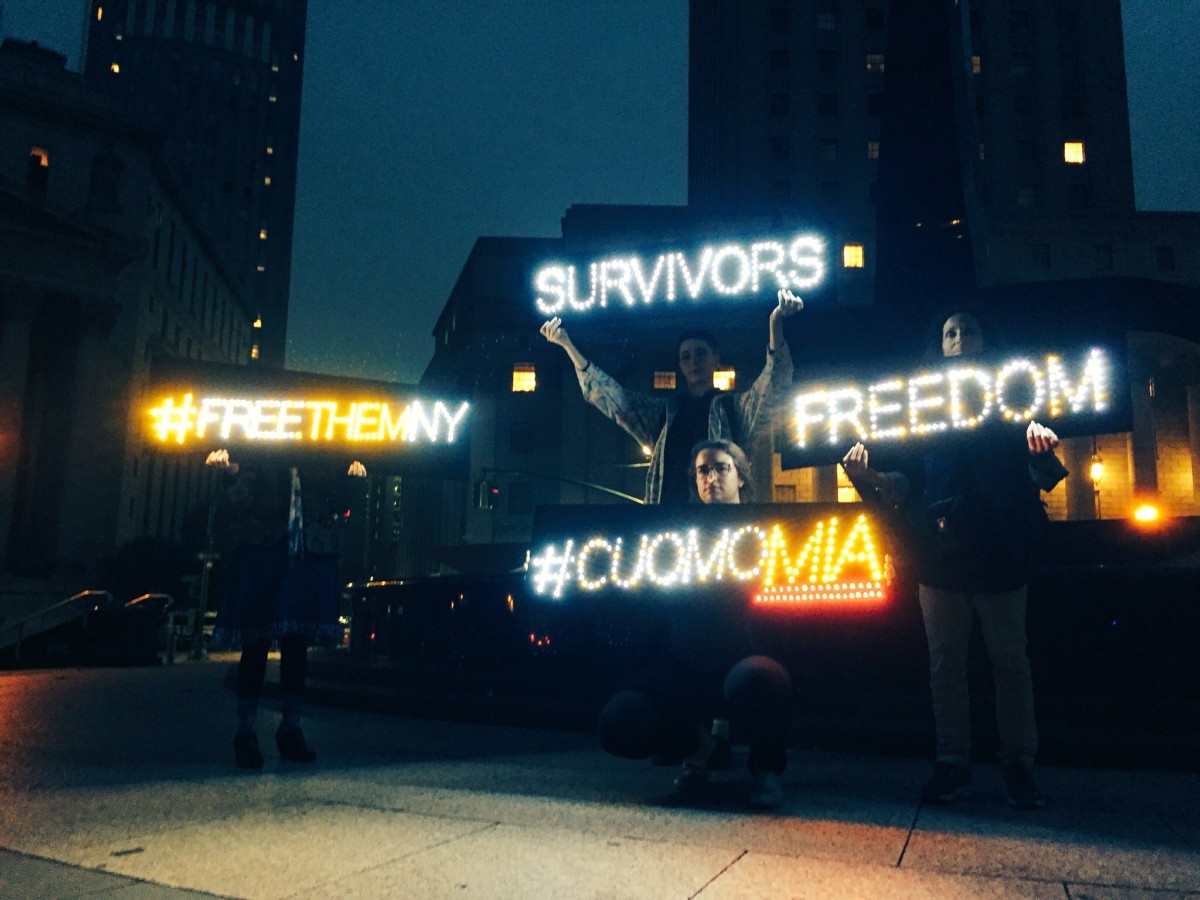Support justice-driven, accurate and transparent news — make a quick donation to Truthout today!
For the Democratic Party, it’s been a tense primary season. Across the country, entrenched Democratic incumbents have been faced with progressive challengers. In New York, Democratic Gov. Andrew Cuomo has found his progressive challenger in actor and activist Cynthia Nixon. Cuomo has clashed with Nixon over policies that many progressive candidates are demanding, such as the implementation of a statewide Medicare for All system, but another issue has gained prominence in the race that was less foreseeable: commutations for survivors of abuse and assault who are imprisoned for acts of self-defense. Commutations aren’t exactly a hot topic in most major electoral races in the US, which raises the question: How did the issue gain prominence in one of the country’s most-watched gubernatorial races?
For months, Cuomo has faced fierce demands from an organization called Survived and Punished, whose #FreeThemNY campaign (part of a national #FreeThemAll campaign) demands Cuomo commute the sentences of survivors who are imprisoned for acts of self-defense. By uplifting stories like that of abuse survivor Jacqueline Smalls through educational efforts, dialogue and direct action, a relatively small team of organizers, operating on a shoestring budget, has forced their objectives into the realm of public discussion and political contention. Cynthia Nixon has vowed to commute the sentences of survivors like Smalls, if elected. Creating tension around a prisoners’ rights issue in a major race is no small organizing feat. To learn more about how grassroots organizers brought this issue to the front and why it belongs there, Truthout spoke with Survived and Punished organizer Mariame Kaba.
Kelly Hayes: Can you tell us a bit about Cuomo’s history on commutations, and why Survived and Punished launched this campaign?
Mariame Kaba: In late 2014, Cuomo made a big deal of creating a new clemency bureau as part of his administration to presumably do more sentence commutations and grant more pardons. It turned out, however, that this new office and his big announcement were mostly for show. His record on commutations has been dismal, and his pardons have been stingy. The clemency bureau did outreach to a bunch of lawyers who’ve been working with prisoners to complete clemency applications based on arbitrary rules they created. So far, no one knows how many petitions they’ve received since 2015, how many have been granted or rejected and for what reasons. It’s a huge black box when the public deserves complete transparency.
Our #FreeThemNY campaign is particularly focused on demanding commutations for criminalized survivors of violence, but we support commutations for everyone. In nearly eight years in office, Cuomo has commuted 12 sentences. Twelve. This is truly shameful and it is merciless.

Cuomo has said that there are rules and guidelines for commutations, while Survived and Punished has insisted that those guidelines are arbitrary and “made-up” to facilitate Cuomo’s inaction. Could you say more about that?
Cuomo created a set of stringent criteria for who is eligible for commutations. Those rules are completely arbitrary. The Constitution of New York gives Cuomo complete power to commute and pardon anyone he wants, for any reason, at any time. His decisions are not subject to review. He has complete power to do anything he wants, yet he points to rules he created to exclude certain people from consideration. It’s a complete bad joke.
The Executive Clemency Bureau says that commutations are granted when a person has made “exceptional strides in self-development and improvement,” or “is suffering from a terminal illness or has a severe and chronic disability” or “further incarceration would constitute gross unfairness because of the basic inequities involved.”
Eligibility requires that a sentence is more than one year, that the defendant must have served at least one-half of their minimum and that the defendant must not be eligible for parole within one year of the date of their application.
Cynthia Nixon’s promise to commute the sentences of criminalized survivors, if she is elected, was a surprise to many. What do you think the significance of that promise is, in this political moment?
She is responsive to organizers’ concerns and willing to be educated on important issues. It would be good if many more candidates for office approached issues in the same way. Why should domestic violence survivors, for example, be criminalized for using violence to defend their lives or that of their children? Anyone can see that this makes sense. We happen to believe that criminalization itself is a form of radicalized gendered violence. We made that case and Cynthia Nixon agreed that this is wrong.
The ideological standoff between Cuomo and Nixon echoes a larger divide among Democrats right now — with one side calling for voters to support entrenched, establishment Democrats, while others are pushing for candidates with more progressive agendas. What do you think is at stake in these debates for campaigns like yours?
Our work focuses on freeing prisoners and ending criminalization. Prisoners are not seen by most elected officials in the Democratic Party as “important.” Felony disenfranchisement means that many prisoners are blocked from voting, and therefore, they aren’t seen as constituents. It’s very important that we push Democrats to get serious about enfranchising prisoners and formerly incarcerated people. They have a right to weigh in on governance issues and issues that impact their lives and the lives of their families. Establishment Democrats haven’t taken these issues seriously over the years. We have to push with and on behalf of prisoners for them and their issues to be seen rather than invisibilized. This is an important moment to do this within the Democratic Party.

Your group’s organizing has made the fate of incarcerated survivors a major issue in the Democratic primary, which is no small feat. What advice would you offer to other organizers around the country right now, in terms of using popular political moments to uplift less popular issues?
Elections can serve as important opportunities to educate candidates and the general public about various issues. Get in the game. Make noise. Develop a plan of action and execute. For our part, we think that it most important to focus on issues over candidates. If particular candidates commit to supporting your issues, it’s important to make sure to hold them to their promises.
Media that fights fascism
Truthout is funded almost entirely by readers — that’s why we can speak truth to power and cut against the mainstream narrative. But independent journalists at Truthout face mounting political repression under Trump.
We rely on your support to survive McCarthyist censorship. Please make a tax-deductible one-time or monthly donation.
